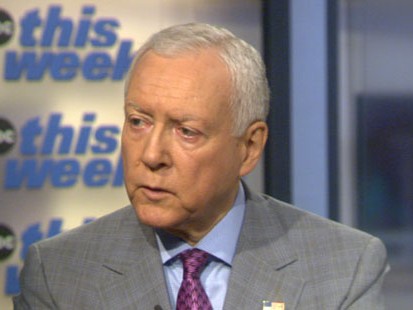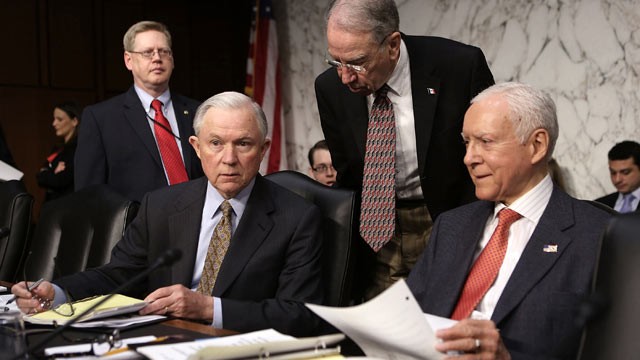A central driving force
exists in every movement. The force for independence in colonial America
was centered in Samuel Adams of Boston, known as the Fire of the
American Revolution.
English rule of America in the 1700s was largely a hands-off matter. There was little supervision from the British. The colonies, with their individual adaptations, mostly ruled themselves through governing councils. The British sporadically collected tariffs and import duties, but because they were lax in doing so few took them seriously. Smuggling by American merchants was a respectable enterprise.
The situation changed in 1764. The British Parliament broke its own charter rules with the colonies. It implemented new taxes, and, what was worse, began to enforce them. The French and Indian War, fought on American soil, had been expensive. The British reasoned that the war had helped the colonies so they could help pay for it, and the Stamp Tax was born. Samuel Adams said no; this violated constitutional charters between England and the colonies. His message was, “We have a charter. Follow it!” If the colonies did not stop this infringement of their charter rights, he reasoned, where would British taxation stop?
Adams was firm. He was the patriot conscience -- unyielding and steady in a political crisis. He was a benign, gentle man until it was time to thunder for the rights of his countrymen. He was immersed in colonial politics; he instinctively understood the process, and could brush off personal insults that brought down lesser men.
It would be another decade, however, before Samuel and his younger cousin, John Adams, pushed for a permanent break from Britain. Meanwhile, he challenged the British bully. Over time, that vision drove him toward liberty.
Samuel (never Sam!) was a deeply religious man with unquestioned integrity. There is no indication that he ever acted from personal ambition or self-interest. He was Harvard educated and upper middle class and knew most of Boston’s fifteen thousand citizens by name, trade and politics. He treated them all the same.
For twelve years, Adams challenged every infringement to the Massachusetts charter. He never let the issue rest. Like a bulldog unwilling to let go, he wearied three successive governors and railed at every injustice. When the colonists grew tired of the harangue and would have given up, he fanned the flame of resistance. He recruited those who could aid in the cause and helped unite all the colonies in coordinated action.
Speech wasn’t enough, so Adams wrote extensively, as well. As was common at the time, he wrote his stern, well-reasoned essays under assumed names. His articles frequently graced the weekly four-page colonial newspapers, especially the patriotic Boston Gazette. These papers were carried to England, where they encouraged American sympathizers in influential British circles.
Samuel was part of the two congresses that preceded the Declaration of Independence. He encouraged fellow delegates to consider a permanent break with England. He kept no journal and destroyed personal papers to protect anyone mentioned from British charges of treason if they were captured. He chose to not participate in the Constitutional Convention in 1787, fearing its outcome, and at first opposed the new Constitution. Midway in the ratification process, he changed his opinion and swung his influence toward ratification for Massachusetts.
Adams was the vortex of rebellion against tyranny. Two hundred and fifty years later, we could use his passion, persistence and political savvy as we again face a government gone rogue. He would surely defend the law of the land and of God -- the Constitution drafted by his patriot friends. His courage, and that of other unyielding patriots, is sorely needed.
The break with Great Britain that created the
United States of America first began 250 years ago this week. Samuel
Adams manned the rostrum of Boston’s Faneuil Hall on May 24, 1764. He
gave instructions to Massachusetts delegates who would attend its
provincial legislature, the Court of Massachusetts Bay. His instructions
brought into focus America’s resistance to the British, who were
ignoring their own colonial charters with the American colonies.

English rule of America in the 1700s was largely a hands-off matter. There was little supervision from the British. The colonies, with their individual adaptations, mostly ruled themselves through governing councils. The British sporadically collected tariffs and import duties, but because they were lax in doing so few took them seriously. Smuggling by American merchants was a respectable enterprise.
The situation changed in 1764. The British Parliament broke its own charter rules with the colonies. It implemented new taxes, and, what was worse, began to enforce them. The French and Indian War, fought on American soil, had been expensive. The British reasoned that the war had helped the colonies so they could help pay for it, and the Stamp Tax was born. Samuel Adams said no; this violated constitutional charters between England and the colonies. His message was, “We have a charter. Follow it!” If the colonies did not stop this infringement of their charter rights, he reasoned, where would British taxation stop?
Adams was firm. He was the patriot conscience -- unyielding and steady in a political crisis. He was a benign, gentle man until it was time to thunder for the rights of his countrymen. He was immersed in colonial politics; he instinctively understood the process, and could brush off personal insults that brought down lesser men.
It would be another decade, however, before Samuel and his younger cousin, John Adams, pushed for a permanent break from Britain. Meanwhile, he challenged the British bully. Over time, that vision drove him toward liberty.
Samuel (never Sam!) was a deeply religious man with unquestioned integrity. There is no indication that he ever acted from personal ambition or self-interest. He was Harvard educated and upper middle class and knew most of Boston’s fifteen thousand citizens by name, trade and politics. He treated them all the same.
For twelve years, Adams challenged every infringement to the Massachusetts charter. He never let the issue rest. Like a bulldog unwilling to let go, he wearied three successive governors and railed at every injustice. When the colonists grew tired of the harangue and would have given up, he fanned the flame of resistance. He recruited those who could aid in the cause and helped unite all the colonies in coordinated action.
Speech wasn’t enough, so Adams wrote extensively, as well. As was common at the time, he wrote his stern, well-reasoned essays under assumed names. His articles frequently graced the weekly four-page colonial newspapers, especially the patriotic Boston Gazette. These papers were carried to England, where they encouraged American sympathizers in influential British circles.
Samuel was part of the two congresses that preceded the Declaration of Independence. He encouraged fellow delegates to consider a permanent break with England. He kept no journal and destroyed personal papers to protect anyone mentioned from British charges of treason if they were captured. He chose to not participate in the Constitutional Convention in 1787, fearing its outcome, and at first opposed the new Constitution. Midway in the ratification process, he changed his opinion and swung his influence toward ratification for Massachusetts.
Adams was the vortex of rebellion against tyranny. Two hundred and fifty years later, we could use his passion, persistence and political savvy as we again face a government gone rogue. He would surely defend the law of the land and of God -- the Constitution drafted by his patriot friends. His courage, and that of other unyielding patriots, is sorely needed.



